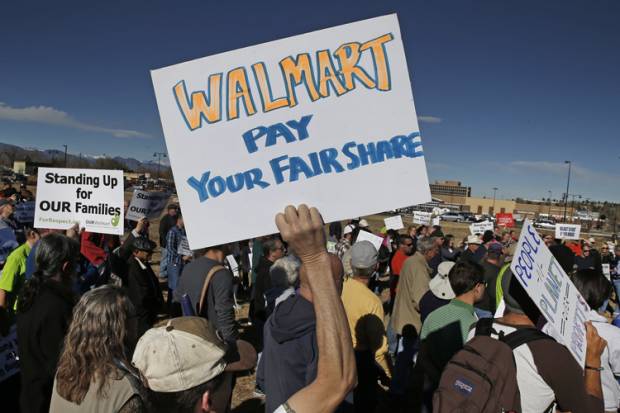Although Sen. Bernie Sanders and Sen. Elizabeth Warren, both running for president in the 2020 Democratic presidential primary, have similar economic views, they part company when it comes to the use of the words “socialism” and “capitalism.” Sanders describes himself as a “democratic socialist,” while Warren has declared, “I’m a capitalist to my bones.” But truth be told, Sanders and Warren are both disciples of President Franklin Delano Roosevelt’s New Deal and President Lyndon B. Johnson’s Great Society — and both of them are campaigning on the fact that unrestrained crony capitalism has been a source of misery for the American working class.
The private sector certainly has its place in the United States, but absent sufficient regulation, one doesn’t have a free market, but rather, monopolies, gaping inequality and exploitation of consumers. Sanders, Warren, Rep. Alexandria Ocasio-Cortez and others in the liberal/progressive movement of 2019 are not really anti-capitalist; what they are railing against is crony capitalism.
Here are some ways in which unrestrained crony capitalism is making Americans’ lives miserable.
1. Health care
Of all the major industrialized developed countries, the United States is the most dysfunctional when it comes to health care. Americans pay more for health care than their counterparts in Europe, Australia, Japan or New Zealand, yet get much worse results. And Americans are dying younger: life expectancy, according to CIA World Factbook data, was only 79 in the U.S. in 2015 compared to 84 in Japan, 82 in Switzerland, Italy and Australia or 81 in the Netherlands and Sweden.
The Affordable Care Act of 2010, a.k.a. Obamacare, was an improvement over the horrible health insurance system the U.S. had before that, but insurance companies still have way too much power and can discourage Americans from seeking preventative care. Democrats have different views on how to achieve universal health care: Sanders favors a Medicare-for-all system, while the centrist Minnesota Sen. Amy Klobuchar (another presidential candidate) favors an aggressive expansion of Obamacare combined with a possible public health option.
Democrats can have a robust debate on what universal health care should ultimately look like in the U.S., but whatever their views, there is no question that insurance companies and their abusive practices exemplify crony capitalism at its absolute worst.
2. Banking abuses
Sanders, contrary to what the far right claims, is not promoting a “government takeover of banking,” but he does favor using anti-trust laws to break up large megabanks into much smaller banks and forcing them to compete with one another. Ironically, a self-described “democratic socialist” — unlike his Republican opponents in the Senate — is the one promoting a fundamental element of free-market capitalism: competition. And when megabanks are allowed to merge with other megabanks and competition is reduced, consumers inevitably suffer. Banks have a long history of charging outrageous fees for everything from writing checks to using debit cards to having checking account balances under $1500, and the more the too-big-to-fail model is encouraged, the more abusive they are inclined to be.
3. A severe housing crisis
Warren is absolute right when she asserts that the U.S. is suffering from “a severe lack of affordable housing.” The problem is especially harsh in large cities, where millions of Americans are rent-stressed yet cannot afford to purchase a home. Developers, as Warren has noted, “can usually turn bigger profits by building fancier new units targeted at higher-income families rather than units targeted at lower-income families.” To tackle the crisis, Warren has proposed legislation to encourage “federal investments to increase” the United States’ “housing supply.”
4. Unfair tax policies
The GOP-sponsored Tax Cuts and Jobs Act of 2017, which lowered the corporate tax rate in the U.S. from 35% to 21%, is classic trickle-down economics. While giant corporations have prospered, the Republican overhaul of the U.S. tax code offered precious little tax relief for the American middle class. And in fact, some of the tax deductions that the law eliminated or reduced resulted in higher tax bills for middle class Americans.


